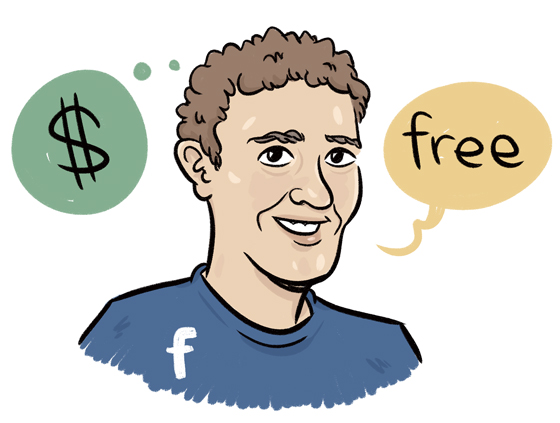“Freedom of speech” has perhaps never looked so confused.
In the days immediately following a massacre at French comics magazine Charlie Hebdo last week that left at least 12 people dead and 11 injured, multinational tech companies rallied support. Donations have poured into Charlie Hebdo’s headquarters, including 250,000 Euros (or about $300,000) from the Fund for Digital Innovation, which is funded by Google but administered independently. Apple and Facebook both proclaimed “Je Suis Charlie.” Facebook founder and CEO Mark Zuckerberg posted on his personal page: “I’m committed to building a service where you can speak freely without fear of violence.” As it so often does, Twitter served as a meeting point for news and debate around the Charlie attack.
It is difficult to overstate just how misleading these pledges for press freedom really are.
Tech companies are companies first, and their politics shift to best serve their business. For platforms like Facebook and Google, “free speech” protection is only a central principle when and where it is convenient. And even when it does serve their profit models, it is arguably doing so at the expense of the modern press, the work of cartoonists and other image-makers, and the actual making of “free” speech online.

Tech’s dedication to “free speech” is apparently a quite serendipitous phenomenon. Only a few weeks before the murders at Charlie Hebdo’s offices, Zuckerberg was in China, saying pleasant things about Chinese socialism. Twitter and Google too are courting China’s massive user base, despite the country’s well-documented record of punishing political dissidents.
In Europe, Google is complying with a law that allows people “the right to disappear,” i.e. to delete speech made about them that they find unacceptable in some way. And only a few years ago, Apple banned any apps that lampooned political figures, nixing at least two created by cartoonists.
EVEN WHEN THEY ARE not implicitly supporting assaults on free political speech, tech companies are “democratizing” speech in a way that builds wealth for themselves and strips it from creators. By its nature, the network dilutes authorship. But this is not simply the result of likes and shares, of a long game of telephone where everyone might love a drawing but never know its creator—it is primarily the result of platforms and their business models.
For its part, Google is well-aware of the power of cartoons—it employs its own team of illustrators to create original art for the company on a regular basis, those homepage “doodles” that commemorate holidays and important historical events. Facebook also loves a good image: Some cartoons can circulate millions of times through social shares. In turn, media businesses of all kinds rely on Facebook for ever more of their traffic.
This symbiotic corporate relationship might make some media companies squirm, but it’s even more uncomfortable for those who are actually speaking. When cartoonists rushed to respond to the Charlie Hebdo massacre with their pens, they posted their finished work on Twitter—where it was promptly scooped up and embedded on media sites, sans pay.
Tech platforms seeking as much “free” and high-quality content as possible are now in some cases actually preventing the actual making of it. One magazine editor said he doesn’t publish many cartoons because “comics tend to get thrown on Imgur or another source and circulated without credit.” In some ways, original art transcends the network, already brimming with phone photography, film GIFs, and low-quality but virally pervasive clip art. But that only makes the work ultimately more shareable.
Modern technology is both useful and dangerous for visual artists. Where we once relied on traditional media companies to disseminate our work, we now have some control over our own reproduction and exposure. But we pay for that exposure by licensing the rights to our work to large platforms. When we share our speech on Google, Facebook, or Twitter, it is not “free”—it contributes to the wealth of those already very wealthy platforms.
Platforms may take some pride in their supposed openness and purported freedom. But the making of free speech is far more complicated than posting a status update. And, of course, Google, Twitter, and Facebook already know this—after all, they’re the ones cashing the checks.




